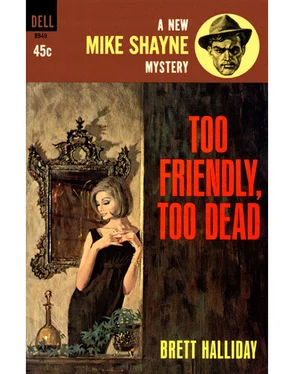Dan Fesperman - The Double Game
Здесь есть возможность читать онлайн «Dan Fesperman - The Double Game» весь текст электронной книги совершенно бесплатно (целиком полную версию без сокращений). В некоторых случаях можно слушать аудио, скачать через торрент в формате fb2 и присутствует краткое содержание. Жанр: Шпионский детектив, на английском языке. Описание произведения, (предисловие) а так же отзывы посетителей доступны на портале библиотеки ЛибКат.
- Название:The Double Game
- Автор:
- Жанр:
- Год:неизвестен
- ISBN:нет данных
- Рейтинг книги:3 / 5. Голосов: 1
-
Избранное:Добавить в избранное
- Отзывы:
-
Ваша оценка:
- 60
- 1
- 2
- 3
- 4
- 5
The Double Game: краткое содержание, описание и аннотация
Предлагаем к чтению аннотацию, описание, краткое содержание или предисловие (зависит от того, что написал сам автор книги «The Double Game»). Если вы не нашли необходимую информацию о книге — напишите в комментариях, мы постараемся отыскать её.
The Double Game — читать онлайн бесплатно полную книгу (весь текст) целиком
Ниже представлен текст книги, разбитый по страницам. Система сохранения места последней прочитанной страницы, позволяет с удобством читать онлайн бесплатно книгу «The Double Game», без необходимости каждый раз заново искать на чём Вы остановились. Поставьте закладку, и сможете в любой момент перейти на страницу, на которой закончили чтение.
Интервал:
Закладка:
The allusion to a book code was, for the moment, over my head. I knew what a book code was-a way for spies to communicate by using a shared literary passage as a decoding tool. But which book should I use? And on what page? And with what set of numbers for line 11? I turned over the note, but the other side was blank.
That’s when I noticed the ghostly watermark-the outline of an elaborate crest and the maker’s name, Gohrsmuhle. Now I knew why it reeked of the Old World. The paper had been manufactured in Germany decades ago, and there was a box of it upstairs in the drawer of my bedside table. I had bought it after we moved to Berlin when I was seventeen, to write letters to a girlfriend I’d left behind in Vienna. My first love, and my first secret correspondence. Only seven sheets of it remained-six now, presumably-and the envelope had almost certainly come from the same box.
I then noticed irregularities in the typeface. Every i was slightly raised, and the upper chamber of each e was filled with ink. Meaning the note must have been typed on my old manual Royal, a keepsake I had appropriated long ago from a Post scrap pile during newsroom renovations. It, too, was upstairs, in a locked attic office.
I am not generally one for dramatics, but something like a shiver passed through me. Whoever left this message had not only been in my house, he had taken his time, digging up the stationery and then breaking into my office to type, raising a clatter you could have heard next door. For all I knew, he was still up there. Or maybe he’d made off with everything, my Royal and the whole box of stationery.
Worry turned to anger, and I ran up the stairs two at a time. A practical joke was one thing, a home invasion quite another.
No one was there. The box of stationery was safe in its drawer, minus a sheet and an envelope. The typewriter still sat on the desk. The door to the office was locked, and showed no signs of tampering.
Surely the front door of the house would tell a different story. My neighborhood was hardly immune to crime, and over the years I had invested in a stout deadbolt and an alarm system. But the status light on the system monitor still glowed a benign green, and the deadbolt was unmolested. So were the doorjamb, the kitchen door, and the slider in the back. Every window was secure.
I felt like one of Ian Fleming’s Bond martinis-shaken, not stirred. Returning to the kitchen, I poured three fingers of bourbon and drained half of it in two scalding swallows. Only when it began lighting up my nervous system did the real point of this elaborate intrusion occur to me:
It, too, in both style and substance, had been stolen from the pages of an old spy novel.
I stepped to the bookshelves by the fireplace, where it took me only seconds to locate A Fragment of Fear, a 1965 novel by John Bingham. While I was at it, I grabbed my yellowed paperback of Maugham’s Ashenden and the hardback of The Double Game, then took everything to the couch.
Flipping through the Bingham, I found what I was after in chapter three, a scene in which the main character receives a threatening note, then realizes it must have been typed on his own typewriter with his own stationery, even though his home showed no sign of a break-in. Bravo. I toasted the intruder’s ingenuity and drained the bourbon.
What made this little stunt even more fascinating was that Bingham was not just any author. A titled Brit also known as Lord Clanmorris, he, too, had spied for his country, and he was a fine writer. But his greatest claim to literary fame was by proxy. He was reputedly a model for fictional spymaster George Smiley, John Le Carre’s very own Folly, and yet another fabled mole hunter. Not to mention that, to my mind, Bingham’s best work was a novel called The Double Agent. Someone had moles on the brain.
My earlier inclination had been to phone the police. I now dismissed the idea. Rattled as I was, my curiosity was stronger, and if the police got hold of these items I might never get them back. Plus, with no sign of a break-in, and all the materials coming from upstairs, they might even conclude I’d cooked it up myself. A publicity stunt from a man paid to create them.
One thing I could say with certainty-whoever did this either knew me well or had done plenty of research. I could think of only one person who would’ve spotted all the references in the note, and that was my father. But break-ins and practical jokes weren’t his style, and the topic of Edwin Lemaster remained off-limits.
Dad was retired now and still living abroad, although I’d seen him only a few weeks earlier at the funeral of a family friend, Wils Nethercutt. The service, oddly enough, had produced its own quirky Lemaster moment, which I couldn’t help but recall.
The burial was on Block Island. Getting there required a drive to Connecticut plus a ferry crossing, and I arrived just as the doors of the church were closing. I slid into a pew up front where my father sat alone, two rows behind Nethercutt’s widow, Dorothy. The church was only a quarter full, a gathering dominated by stooped, white-haired men, some of whose faces were vaguely familiar. A few doddered up to the pulpit to tell old stories about the deceased-spy tales, it seemed, an impression reinforced when a fellow in the back stood to lock the church doors, then posted himself like a sentry.
“Bunch of old spooks,” my father whispered disapprovingly, but I was entertained. The stories were lighthearted, even funny, although the narrators kept names and locations to a minimum, as if still living by their old rules.
Toward the end of the service there was a brief stir when heads turned toward the sound of creaking floorboards in the balcony. No one had switched on the lights up there, so all you could see was a thin figure in gray, seated in the shadows. During the final prayer I saw him duck out a door, and he was gone well before everyone began filing out. There was no sign of him at the reception, but an agitated old fellow in a wheel chair insisted loudly that it must have been Edwin Lemaster.
“That pariah?” one of the few women in attendance answered shrilly. “Surely not.”
“Easy, Val,” someone cautioned. “Plenty of us are still on good terms.”
“Why a pariah?” I asked Dad. I was feeling both relieved and disappointed by having missed a fresh encounter with my onetime idol.
“Lemaster was never a favorite of some of the people here.”
“Like that woman Val?”
“Apparently. I’m not familiar with her, but she’s probably Agency.”
“Who’s the one in the wheelchair?”
“Giles Cabot. He and Nethercutt were practically joined at the hip, so no one was surprised when they both retired here. Good to see him out and about.”
“What did he do for the Agency?” Dad surprised me with a direct answer.
“A top deputy in counterintelligence. For that paranoid old nut, Jim Angleton.”
“Is that what Mr. Nethercutt did, too?”
“You aren’t supposed to know that, but yes. Angleton’s people were always a little prickly and superior for my taste, even when they made the rounds of the embassies. But that was the required persona if you worked for Jim: Us Against the World.”
“How’d we end up being invited to this?”
“Wils was a year ahead of me at Yale, and our fathers were friends. But I imagine it was more a case of Dorothy trying to fill the pews. Not many old timers left from State or the Agency.”
“Dorothy looks familiar.”
“We used to see a lot of the Nethercutts those two years in Georgetown. You were pretty young then.”
I went for a drink. Dad sought refuge with a pair of old colleagues from State. They huddled with their backs to the ex-spooks like shipwreck survivors on a raft.
Читать дальшеИнтервал:
Закладка:
Похожие книги на «The Double Game»
Представляем Вашему вниманию похожие книги на «The Double Game» списком для выбора. Мы отобрали схожую по названию и смыслу литературу в надежде предоставить читателям больше вариантов отыскать новые, интересные, ещё непрочитанные произведения.
Обсуждение, отзывы о книге «The Double Game» и просто собственные мнения читателей. Оставьте ваши комментарии, напишите, что Вы думаете о произведении, его смысле или главных героях. Укажите что конкретно понравилось, а что нет, и почему Вы так считаете.












